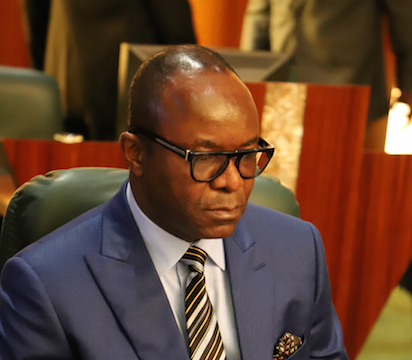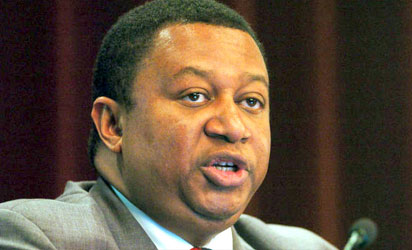40bn barrels not likely soon as investors remain sceptical over PIGB
 |
| Minister of State for Petroleum, Ibe Kachikwu |
A report by the Department of Petroleum Resources, DPR, obtained by Vanguard showed that Nigeria’s oil reserves remain low at 37 billion barrels, despite efforts made by the government and others to achieve 40 billion barrel by 2020.
In an interview with journalists in Lagos, a Ministry of Petroleum Resources official, who preferred not to be named, said: “If you take into account Nigeria’s condensates production, the daily average production is over 2 million barrels.
There is a very realistic capacity to upscale the country’s proven reserves to 40 billion barrels within the next few years, so this market will continue to remain attractive for a long time. “Even if there are no new oil finds, you are looking at another roughly 45 years or so of supply at current rates. However, when you start to look at the huge gas reserves of well over 5 trillion, which ranks Nigeria as possessing Africa’s largest gas reserves, this surely has to be the investment destination of choice and will continue to be.”
ALSO READ: Call Kachikwu to order BMC tells Buhari
But in a recent presentation obtained by Vanguard, the President of Nigerian Association of Petroleum Explorationists (NAPE), Dr Andrew Ejayeriese, stated that claims by the federal government to achieve 40 billion barrels in reserves by the year 2020 are not feasible.
Current rig count
Already, the country’s rig count nosedived by 6 in November. According to latest data from OPEC, Nigeria’s rig count dropped to 28 in November as against 34 recorded in October.
Nigeria’s decline figure, which tallies with Kuwait’s remains the highest among members of OPEC. Kuwait reported 44 in November as against 50 reported in October. OPEC also showed a rig count decline of 11, having reported 557 in November, as against 568 reported on October, while the world rig count also suffered a decline by five going by its 2,350 figure in November as against 2,355 reported the previous month.
Following Nigeria and Kuwait in the decline curve is Saudi Arabia, which had minus three, having reported 152, as against 155 reported within the period under review, while Venezuela had minus two, having reported 67, as against 69, reported within the period under review.
 |
| Secretary General of OPEC Mohammed Barkindo Outlook In an email to Vanguard, Director General, Lagos Chamber of Commerce and Industry, Mr. Muda Yusuf, stated: “The Nigerian economy remained fragile with the high dependence on oil sector for revenue and foreign exchange earnings. Although oil revenues increased with recovering oil prices in 2018, the impact on the economy was subdued by the huge foreign exchange commitments to petroleum product importations and the inherent subsidy. The high debt service obligations were also major constraints to the growth of the economy. “With the limited progress in the ongoing effort to diversify government revenue sources, the performance of the oil and gas sector would remain a critical factor that would shape the outlook for the economy in 2019. ALSO READ: Nigeria records plus 1 rig count, as OPEC records 10 “According to estimates by Capital Economics analysts, every $10-per-barrel fall in oil prices will cause a 3 to 5 percent decline of GDP in most of the Gulf economies, and a slowdown of 1.5 to 2 percent of GDP in Russia and Nigeria on an annualized basis. The outlook will therefore depend to a large extent on developments in the oil and gas sector and the political will to undertake far reaching reforms, beginning with the oil and gas sector.” Suggestion Mr. Yusuf who called for immediate assent of the PIGB by President Buhari stated: “Delays in passage of the Petroleum Industry Bill (PIB), the downstream sector as currently constituted is unstructured and largely noncompetitive. Administrative bottlenecks are hindering productivity of the sector.” |

No comments